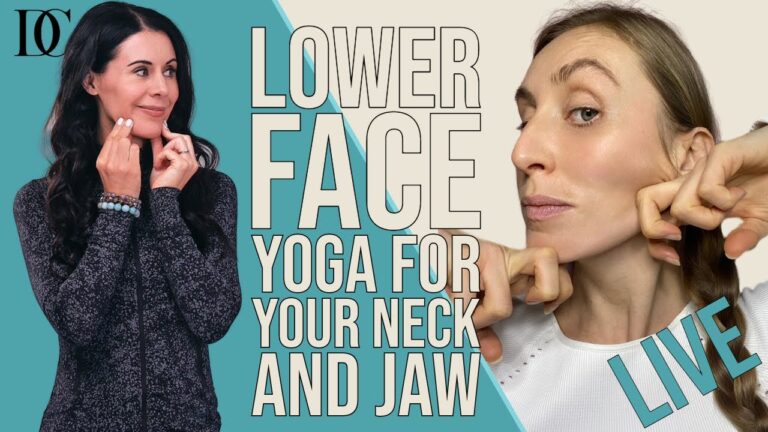This guest blog post was written by Malcom David, age 17.
Seventeen-year-old Malcom David shares his experience attending a sexual health and rights conference with his mom, GFC Regional Capacity Development Specialist for West Africa Amé Atsu David.
On June 21, I left my hometown of Monrovia, Liberia, to accompany my mom on a journey to Freetown, the capital of neighboring Sierra Leone. We went to attend the 10th Africa Conference on Sexual Health and Rights, a conference held every two years to further the discourse on eliminating sexual and gender-based violence in Africa. Despite my hesitance at first to go, it was an eye-opening and memorable experience for me.
THE ROAD TRIP
We left Monrovia at approximately 6:00AM to begin our day-long voyage by road to Freetown. I fell asleep but managed to wake up to view the dazzling scenery that rural Sierra Leone has to offer: breathtaking mountains, rivers, and evergreen forests perfectly accentuated by surprisingly well-paved roads. As we drove closer and closer to Freetown, I was amazed to see that the entire city lies amid a stunning accumulation of hills and mountains.
YOUNG PEOPLE AT THE CENTER OF THE CONFERENCE
When we arrived in Freetown, we went to the conference hall to register and collect our conference packets. I met some of my mom’s peers and also some of the young people she works with. Prior to that moment, I had never met a group of young people so dedicated and driven toward a cause, and it was truly remarkable to see people of my age actively trying to play a part in creating a better and more equal world.
I was expecting to be surrounded by a group of older men and women discussing issues about the youth without the youth, but to my surprise the conference was brimming with young people of all ages and nationalities, which set a positive precedent for the importance of inclusion when it comes to providing these platforms.
The opening ceremony the next day set the stage for what was to come, with heart-stopping poetry and speeches delivered by extraordinary young speakers who all uniquely shed a light on gender rights, sexual and gender-based violence, and other issues. There were also cultural performances by different Sierra Leonean tribes and speeches from dignitaries, notably the Vice President of Liberia, Her Excellency Jewel Howard Taylor, who delivered a crowd-roaring call for action on achieving equal opportunity and rights for young girls and women.
MY INTRODUCTION TO FEMALE GENITAL CUTTING
Following the opening ceremony were workshops on a range of topics. One of the first workshops I attended was about female genital cutting (FGC). I had only vague knowledge on this subject but was intrigued due to one of my friends having an interest in it. Hearing expert speakers deliver their opinions, I was surprised at just how extensive the cultural and socio-economic debate surrounding FGC is, and it became an issue I wanted to know more about.
This was a subject that was particularly of interest to the host nation, as 83 percent of women aged 15-49 have undergone FGC according to 2019 Demographic Health Survey and many NGOs in the country are working to raise awareness on this issue. In a nutshell, most people in Africa are against FGC due to the immorality of cutting off a child’s private part without their consent, and many women who experienced FGC hold feelings of resentment toward those that forced the practice upon them. However, many women in certain cultures treasure the practice as a rite of passage essential to the transition from girl to young woman, although some women are petitioning for an FGC-free form of the practice known as “Bondo without blood.”
Having heard and understood both sides of the argument, I sided more with removing all aspects of FGC from all cultures, as the prevailing opinion from survivors is that it’s an unethical and nonconsensual practice that they wouldn’t have taken part in if they had a choice. Although we are very far from abolishing FGC in all its forms, there is progress being made, and an open and taboo-free dialogue has been established, which wasn’t the case a few years ago.
DISCOVERING THE CHALLENGES FACING MARGINALIZED WOMEN
Among other compelling sessions I attended was one about sexual violence against more marginalized women such as sex workers and formerly incarcerated women. When discussing domestic and sexual violence, there exists a stigma against sex workers due to the erroneous notion that these women “look for it.” Hearing their stories showed that these women too have a voice and deserve the same consideration that other survivors receive. I was particularly touched by the story of Hawa Gborie, who was wrongfully convicted of fraud and spoke about being coerced into having sex with a police officer in exchange for a false promise of freedom.
THE ROLE OF MEN IN THE TRANSITION TO GENDER EQUALITY
One of the most important points brought up throughout the conference was the role that the male gender plays in the transition toward gender equality. As a young man who was fortunate to have been raised by parents who established a very grounded moral compass within me from a very young age, I always had a distinct notion of right and wrong. Nonetheless, attending the conference helped me become even more attuned to certain issues happening around me.
On the second day of the conference, I was invited to participate in a male-only session hosted by author and counselor Luke Daniels, a specialist in counseling men struggling with domestic violence issues. Being the youngest in a roomful of men was an insightful experience. We discussed the importance of being accountable for our actions, and what resonated the most with me was the realization that violence only breeds more violence. The stereotypical social identity of the African man has always revolved around being an alpha, someone who ought to demand respect through violence if necessary.
As a society, we have branded violence as the solution to conflict and disagreement, from beating a child when they misbehave to starting blood-shedding wars in response to political disagreements. It is this very cycle of violence that leads to the high incidence of domestic and sexual violence. This is why we must break this notion of violence and aggression as the solution, and educating the aggressor is the first step toward eradicating this problem. Hence, moral education at a young age is very important to raising the role-model adults we want to see running our society.
Notwithstanding my experience in the male-only session, I felt that there wasn’t nearly enough male involvement during the conference. Although I’m all for women being at the forefront of this revolution, I would have loved to see more male involvement within the opening and closing plenary sessions because I think it will take cooperation from both genders to break these social barriers.
A BREATH OF ENJOYMENT
Despite the seriousness of the topics discussed at the conference, it wasn’t all grim. One evening, we were graced by Afropop star Yemi Alade, who delivered an exhilarating performance of some of her biggest hits, including “Johnny” (a personal favorite), “My Man,” “Oh My Gosh,” and many more. This also happened to be my first concert, so I reveled in the experience amid a jam-packed audience screaming every lyric at the tops of their lungs while dancing to every rhythm. Yemi also understood the significance of the conference and made sure to engage the crowd with her own thoughts and feelings about the need for progress in gender equality throughout Africa.
Another performer who rocked the crowd during her appearance at the conference was the “Princess of Africa,” Yvonne Chaka Chaka. The atmosphere during her performance was equally electric, even inspiring a couple of dance moves from the President and First Lady of Sierra Leone.
MY FINAL THOUGHTS
This was definitely an experience that has marked my life, and I feel privileged to have had the opportunity to attend such a conference that helps expand my knowledge and open my mind to the many social challenges that our world faces. The organizers and sponsors in Sierra Leone did an outstanding job of making Africa proud with their planning and execution, leaving everyone who attended the conference eager to see which country can improve upon the event at the next meeting two years from now.
Lastly, I would like to thank the incredible woman who is my mom for bringing me along for this trip and always encouraging me to have an open mind and the curiosity to learn new things. I am excited to see what the 11th Africa Conference on Sexual Health and Rights will have to offer, and I hope that I will be there to attend in an African city that will bring the heat like Sierra Leone did!
Header photo: Malcom David (right) with the GFC team at the conference. © Amé Atsu David
This content was originally published here.




















